We are pleased to announce the winners of the 2022 American Ornithological Society (AOS) Council election! The Council is the AOS’s governing body, made up of member volunteers who oversee the Society’s strategic direction, policies, budget, and organizational planning. Voting Councilors include four officers (President, President-Elect, Treasurer, and Secretary), twelve Elective Councilors, and three Past Presidents.
Beginning after the upcoming Annual Meeting, AOS will have two new Officers; AOS membership elected Sara R. Morris to be our next President-Elect, and Sara will serve a two-year term before she becomes AOS President in 2024. Sushma Reddy was elected for her first term as AOS Secretary, and Matthew Carling was elected to his second term as Treasurer. Colleen M. Handel will step into the AOS presidency after having served a two-year term as President-Elect.
AOS members also elected five new Elective Councilors, who will also begin their terms at the close of the Annual Meeting. Juan Francisco Ornelas was elected to fill a vacancy in the 2024 class of Elective Councilors; he will serve a two-year term. Christopher Balakrishnan, Nancy Chen, Dan Mennill, and Allison Shultz were elected to the 2025 class of Elective Councilors to serve three-year terms as Elective Councilors.
AOS Council also has several non-voting members, including student members. In 2021, Teresa Pegan was appointed as a non-voting student representative on the AOS Council. In 2022, the AOS President will appoint a second non-voting student member to Council; this past spring, the AOS Student Affairs Committee held an election from among AOS student members and nominated Olivia Wang as this second representative. Our new members of Council will officially take office immediately following the AOS & BC 2022 Conference in Puerto Rico this summer. Read more about our newly elected members of Council below, and congratulations to these new Officers and Councilors!
AOS Council Members’ Biographies (linked PDF).
Linked below each representative are statements and, when applicable, answers to three important questions asked of each candidate in the 2022 election:
- Why are you interested in serving the American Ornithological Society in this leadership position?
- What key interests, experience, or skills would you bring to this position?
- How have your background and experiences prepared you to be effective in a professional scientific society that values diversity?
New AOS Officers
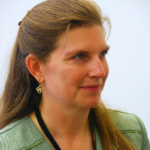
Sara R. Morris, President-Elect
Vice President for Academic Affairs and Professor of Biology, Canisius College
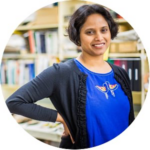
Sushma Reddy, Secretary
Breckenridge Curator of Birds, Bell Museum of Natural History, Associate Professor, Department of Fisheries, Wildlife, Conservation Biology, University of Minnesota, Twin Cities
New AOS Elective Councilors
Term ending in 2025
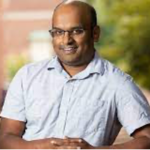
Christopher N. Balakrishnan
Associate Adjunct Professor, East Carolina University
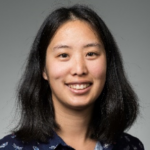
Nancy Chen
Assistant Professor, Department of Biology, University of Rochester
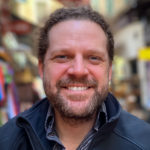
Dan Mennill
Professor, Associate Dean of Science, Graduate Studies and Research
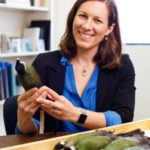
Allison Shultz
Assistant Curator, Natural History Museum of Los Angeles County
Term ending in 2024
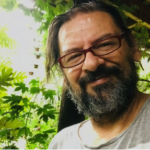
Juan Francisco Ornelas
Full Professor, Instituto de Ecología, A.C. (INECOL)
Student Representatives on Council
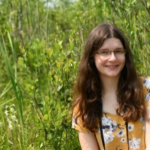
Teresa Pegan
Term ends 2023
Ph.D. candidate, Department of Ecology and Evolutionary Biology, University of Michigan
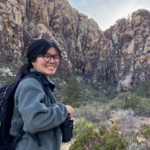
Olivia Wang
Term ends 2024
Graduate Assistant, Department of Natural Resources and Environmental Management, University of Hawai’i at Mānoa
Q&A, Bios, & Candidate Statements
Sara R. Morris, President-Elect
Vice President for Academic Affairs and Professor of Biology, Canisius College. Ph.D., 1996, Cornell University. AOU/AOS member (since 1990), Elective Member (2004), Fellow (2010). AOU Secretary (2006–2014), AOU/AOS Bylaws Committee (2014–present), AOS Early Professionals Committee (2014–2017), AOS Nominations of Elective Members and Fellows Committee (2019–present), Wilson Ornithological Society President (2015–2017, First Vice President 2013–2015, Second Vice President 2011–2013), North American Ornithological Conference VI and VII Steering Committee Member, North American Ornithological Conference V and VI Scientific Program Committee. Began attending AOU/AOS meetings in 1993 and have attended most meetings since then. Received the Marion Jenkinson Service Award (2014) and Canisius’s Koessler Distinguished Faculty Award (2016).
My areas of interest include migration and stopover ecology, flight calling behavior, impacts of anthropogenic structures on birds, and the relationship of migratory birds to the expansion of zoonotic diseases.
Why are you interested in serving the American Ornithological Society in this leadership position?
I am grateful for the many opportunities that I have had to be a scientist, a field biologist, an academic, and an educator, and I would like to repay my mentors by helping to ensure a strong future for the AOS and for ornithologists of all backgrounds. As ornithologists, we face a variety of issues affecting our professions: environmental changes and a dismissal of the impacts of climate change, an assault on science and scientific pursuits, a devaluation of institutions of higher education, and a decrease in state and federal funding for science and for conservation. These issues lead me to worry about the future of ornithology, ornithologists, and birds over
both the short-term and long-term. As the AOS has been changing over the last decade, it is well positioned to ensure that opportunities are available for ornithologists and to leverage the interests of the general public for birds to help support the science of ornithology and the use of this science in conservation of birds (and the environment more broadly). As a scientific Society, we need to ensure that there are a variety of forms of mentoring at all stages of careers and for a myriad of ornithological careers, opportunities and funding for basic scientific research, quality outlets for our research results (both presentations and publications), and application of research into conservation efforts.
What key interests, experience, or skills would you bring to this position?
I believe that my background with the AOU and AOS (as Secretary, as an elected member of Council, on the Early Professionals Committee, on the Nomination of Elective Members and Fellows Committee, and on the Bylaws Committee), with the Wilson Ornithological Society (as a Vice President and President, as Secretary, as a member of Council, and on several awards committees), with the North American Ornithological Conferences (NAOC) (as a member of two steering committees, two scientific program committees, and the Safe NAOC Conduct Committee), and as a college academic administrator (dealing with strategic planning, implementation of major initiatives, changes to higher education, accreditation, financial aid, specific regulations, grant funding, and the myriad of impacts of Covid) will help me be an effective leader of the AOS. I have navigated changes in our publications, challenges with our meetings, financial strains, and issues of access and recognize the importance of broad participation and varied viewpoints when facing challenges. I also bring my long-standing commitment to mentoring individuals at different career stages and with different career goals to this role to ensure that we are supporting the wide range of ornithologists and varied fields of ornithology.
How have your background and experiences prepared you to be effective in a professional scientific society that values diversity?
Working at a Jesuit college has provided me with numerous professional development opportunities to identify and address access, equity, and justice in today’s world broadly and on my campus specifically. While I cannot change the level of privilege that I have experienced, I am committed to increasing equity in opportunities moving forward. On my campus, I helped craft (two years) and implement our Plan for Racial Equity (we are in year three). I championed beginning our work prior to finalizing the plan, recognizing that some changes could be accomplished quickly and shouldn’t be delayed. I also successfully advocated for an audit of our campus policies and practices with an equity lens to improve access, equity, diversity, and inclusion across our programs and activities. As an ally to Canisius’s Unity organization, I have advocated for, helped facilitate, and contributed to numerous initiatives and activities in collaboration with the Canisius LGBTQIA+ community. For example, my attendance at lavender graduation means that a senior leader at my Catholic college is there in solidarity and support. The pandemic has shined a light on the range of inequities faced by different groups in our country and across the world. To make real change, we need to recognize the inequities across racial, ethnic, gender, sexuality, ability, social, cultural, socioeconomic, geographic, and nationality groups, to determine what are the barriers, and to work to eliminate them.
Sushma Reddy, Secretary
Breckenridge Curator of Birds, Bell Museum of Natural History, Associate Professor, Department of Fisheries, Wildlife, Conservation Biology, University of Minnesota, Twin Cities. Ph.D., Columbia University in the City of New York. Member of AOS since 2002; Elective Member (2011); Fellow (2018), Chair, Meetings Coordination Committee (2020–2022); Meeting Coordination Committee (2017–2018); Local Organizing Committee (2013); Student Awards Committee (2020).
My research is centered on the evolutionary history of birds with a focus on diversification patterns in the Old World tropics and the early evolution of modern birds. As an educator, researcher and museum curator, I have a strong interest in promoting natural history collections as a key resource for understanding biodiversity and environmental change. My goals are to continue to support and promote research, education, and outreach activities to advance scientific understanding, public awareness, and conservation of biodiversity.
Why are you interested in serving the American Ornithological Society in this leadership position?
AOS has been the key professional organization that supported me throughout my career trajectory. I continue to be impressed with the variety of people from diverse backgrounds and interests who come together to promote the study and conservation of birds. There is no singular way to be an ornithologist—I believe this is the most important message we can send to create a more inclusive and supportive atmosphere. Diverse perspectives promote excellence and innovation in science and education. In recent years, I have felt a responsibility to actively participate in AOS, which is largely driven by my own feeling of belonging as I interact with members with varied experiences and backgrounds. As part of the Meetings Coordination Committee, I know how hard, yet rewarding, it is to engage in the collective efforts to bring together and facilitate connections across people and disciplines. I would like to continue my service by promoting activities that engage a broader community with a special focus of reaching out to underserved groups. As a society, I believe we have a responsibility to advancing the role of science and conservation of birds while building support for current and future ornithologists.
What key interests, experience, or skills would you bring to this position?
I believe my professional career as an ornithologist as well as my demonstrated organizational skills in my current role serving as chair of the Meeting Coordination Committee has prepared me well for this leadership position. As an educator and researcher, I have a keen awareness of the importance of birds for teaching, learning, and caring about the natural world. In my daily activities, I strongly uphold and work towards the mission of the AOS – to advance science and conservation of birds and the scientists who study them. I am proud to support students navigate their scientific pursuits while also encouraging them in public engagement to communicate their work to varied audiences. For the past two years, I have been honored to play a key role in the meetings organizing team. In planning the 2021 virtual meeting, we worked hard to address many barriers to participation and were successful in attracting a large number of attendees from across the globe. Moving back to an in-person conference in 2022 has presented a different set of challenges. I am proud to be part of the hard-working team whose efforts will undoubtedly be rewarded when ornithologists can mingle again and celebrate in our passion for birds, science, education, and nature.
How have your background and experiences prepared you to be effective in a professional scientific society that values diversity?
I will be honest here and state that my desire to serve is driven primarily by AOS’s commitment to diversity. Promoting science and nature is clearly important but can only be achieved by building a strong community that is diverse, equitable, inclusive, and accessible. I know from my own experiences and hearing others speak about theirs, professional scientific societies can feel impersonal and unapproachable, especially for people of marginalized ethnicities, backgrounds, and genders. Creating a more welcoming atmosphere needs to be an active endeavor. In my efforts for AOS, I strive towards this in multiple ways including by advocating for speakers from diverse backgrounds and experiences; promoting themes relevant to broad audiences; elevating the recognition of women and early-career researchers; encouraging policies that broaden participation. We are all feeling the reverberations of a global pandemic and a worldwide reckoning of racial justice that has exposed deeply ingrained inequities. Amid all this, we saw the power of birds to uplift, empower, and advance discourse. Now it’s our responsibility to harness this excitement to create a more inclusive and equitable environment for people from diverse backgrounds and abilities.
Christopher N. Balakrishnan
Program Director, National Science Foundation, Division of Environmental Biology. Associate Adjunct Professor, East Carolina University (Assistant/Associate Professor 2012−2021). Research Associate, National Museum of Natural History. Ph.D., 2005 Boston University. AOU/AOS member since 2000, Elective Member (2016), Fellow (2020) AOS Diversity and Inclusion Committee, 2016−present. Diversity and Inclusion Travel Awards Committee Leader, 2016−2019. Regular AOU/AOS poster/presentation judge.
My research is focused on the evolutionary biology of birds with an emphasis on the mechanisms of speciation, behavior and genome evolution. As a graduate student I studied the mechanisms of speciation in brood parasitic indigobirds in West Africa. Through my postdoctoral work, I helped develop genomic resources for birds using the zebra finch as a model system. Since then, my lab has worked to apply these genomic tools to better understand some of the intriguing oddities of the bird world (e.g, white-throated sparrows, manakins, and brood parasitic birds). I am very active in outreach as the founder of Nerd Nite, a public lecture series held at venues around the world. I also work closely on outreach and education efforts with Sylvan Heights Bird Park, a renowned bird-focused zoo and captive breeding center in rural, eastern North Carolina. I recently moved from a faculty position at East Carolina University to take on the highly service-oriented work of the National Science Foundation.
Why are you interested in serving the American Ornithological Society in this leadership position?
The AOS has been my home society since I began graduate school. More than any other academic society, the AOS and its members have helped support me through my career. I know, however, that this positive experience has not been shared by all. With this in mind, I am eager to give back to the society that served me so well, better serve the current membership, and help make the AOS a better place for future members.
What key interests, experience, or skills would you bring to this position?
I have served on Diversity, Equity & Inclusion committees at the AOS, ECU, and NSF, starting with the AOS in 2016. Whereas in 2016, I’ll admit I had a lot of learning to do, through my experiences I feel that I’ve become an effective voice for culture change. I have worked at multiple different kinds of institutions (R1, non-R1, government). My research and current work at NSF is highly collaborative, and I would bring my collaborative nature to this role in the AOS. My ornithological interests are also diverse, from conservation-oriented to mechanistic and neurobiological, and I would work to attract this scientific diversity to the AOS.
How have your background and experiences prepared you to be effective in a professional scientific society that values diversity?
I have been a part of the AOS Diversity and Inclusion Committee since its inception in 2016. In this role I’ve been able to witness some of the proactive, progressive steps we’ve taken to improve the society and also, some of the growing pains and conflict associated with this type of culture change. I would come into this position with a clear sense of the work left to be done. At NSF I have been deeply involved in developing new programs aimed at broadening participation, and I’d look forward to bringing this experience to my role on council.
Nancy Chen
Assistant Professor, Department of Biology, University of Rochester. Ph.D. 2014, Cornell University. James G. Cooper Early Professional Award, 2017. AOS Elective Member, 2019. AOS Diversity & Inclusion Committee, 2017–present; AOS Diversity & Inclusion Travel Awards Committee Chair 2019–present; AOS/AOU Early Professionals Committee, 2014–2021; AOS Scientific Program Committee, 2018–2019.
My lab studies the evolution of natural populations on short timescales by integrating evolutionary genomics and pedigree data from long-term demographic studies of vertebrates. We aim to characterize the evolutionary processes shaping genetic variation through space and time, and to link genetic variation to variation in individual phenotypes, fitness, and eventually, population dynamics. We are also interested in elucidating the genomic consequences of population decline, and our research on inbreeding and the importance of gene flow helps inform conservation efforts for the Federally Threatened Florida Scrub-Jay. I have supervised 3 postdoctoral scholars, 2 Ph.D. students, 1 M.S. student, 6 rotation Ph.D. students, and over 20 undergraduate students. I have a strong commitment to promoting justice, equity, diversity, and inclusion in science. Currently, I am the Chair of the American Society of Naturalists Diversity Committee, an active member of the diversity committees for my current department and the AOS, and I co-founded and co-lead the Diversity and Inclusion in Biological Sciences group on campus. My efforts include educating others and myself on equity and inclusion issues, organizing events or creating resources that foster safe, diverse, and inclusive communities, and advocating for systemic change at multiple institutions and scientific societies.
Why are you interested in serving the American Ornithological Society in this leadership position?
AOS has played a formative role in my development as a scientist, mentor, and advocate for justice, equity, diversity, and inclusion in STEM. The first few conferences I attended as a graduate student were AOU meetings, where I felt welcomed and inspired by the ornithological community. My first service opportunities were also through the AOS, first as a judge for student presentations, then as a member of the Early Professionals Committee and the Diversity & Inclusion Committee. I would be honored to increase my involvement with the society, and continue to help AOS build a more equitable and inclusive society for people of all identities and support its members in pursuing diverse career options and impactful, cutting-edge research.
What key interests, experience, or skills would you bring to this position?
I have a long track record of service in AOS and extensive experience leading justice, equity, diversity, and inclusion (JEDI) in STEM efforts. I have been a member of the AOS Diversity & Inclusion Committee since 2017, the Chair of the AOS Diversity & Inclusion Travel Awards Committee since 2019, and a member of the Early Professionals Committee for 7 years. I have co-organized multiple JEDI trainings and symposia at AOS meetings as well as contributed to efforts to quantify society demographics, create funds and events to support historically excluded groups, improve society policies, and much more. Also, I am working to create sustained change in ecology and evolution as the current Chair of the Diversity Committee for the American Society of Naturalists (ASN) and an ex officio member of the ASN Executive Council (both terms end December 2022). These roles involve leading JEDI efforts for the entire society, coordinating with the Diversity Committees of our sister societies SSE and SSB on several tri-society initiatives, and participating in general society governance. At my university, I am a member of the Department of Biology Diversity Committee, and a co-founder and co-organizer of the Diversity and Inclusion in Biological Sciences group.
How have your background and experiences prepared you to be effective in a professional scientific society that values diversity?
Eradicating systemic racism and other inequities in our fields requires sustained engagement across multiple fronts. I am deeply committed to promoting justice, equity, diversity, and inclusion (JEDI) in science, and I prioritize JEDI work in my research, teaching, mentoring, and service activities. Through my multiple leadership and Diversity Committee roles at different scientific societies and my university, I have experience successfully tackling a range of issues at multiple levels. For instance, I have organized multiple JEDI events and trainings at conferences and schools. I have helped increase resources and networking opportunities for historically excluded groups, implement climate surveys to assess the impact of JEDI efforts, and change nomination and application policies to make the process more transparent and equitable. I have been collaborating with JEDI consultants and other scientific society leaders to develop a JEDI action plan and to create an inclusive leadership program and learning community. I am continually learning from readings on evidence-based strategies for culture change, from attending JEDI trainings, from interacting with people of diverse perspectives and backgrounds, and from working with organizations with different policies and practices. I am excited to continue working with AOS to make our community more inclusive and diverse.
Dan Mennill
Professor, Associate Dean of Science, Graduate Studies and Research. Ph.D., Queen’s University (2003). Editorial Board of Condor (2015-2019), Acta Ethologica (2017-2019), and Biology Letters (2009–2015). Elective Member (2006) and Fellow (2013) of the AOS/AOU. Lifetime member of the Society of Canadian Ornithologists (SCO) and the Animal Behaviour Society. Elected Councilor of the SCO (2014–2018). Chair of the AOS/AOU Student Membership Awards Committee (2005–2022).
I study acoustic communication in temperate and tropical birds. Together with a team of undergraduate students, graduate students, and postdocs, I use a field-based approach to study wild birds in Canada, the United States, Mexico, and Costa Rica. In the temperate zone, we study vocal learning and network- based vocal behaviours, especially in chickadees, sparrows, and warblers. In the tropics, we study duetting and other vocal behaviours, especially in wrens. I have helped to pioneer new technologies for bioacoustic studies of wild birds, including multi-channel array recording, passive acoustic monitoring, multi-speaker playback, and interactive playback. I have attended 13 AOS meetings over the past 20 years. My favourite ornithological activities are collecting field recordings, analyzing those recordings with my students and collaborators, and sharing that work through publications and conference presentations.
Why are you interested in serving the American Ornithological Society in this leadership position?
I have been a member of the AOS/AOU since my first meeting 20 years ago, and I value our society very highly, especially our journals, our annual meetings, and our student awards. I am standing for election as councilor so that I can take a turn sharing in the service of overseeing our society. If I am elected as a councilor, I will take the role seriously. I am interested in continuing to emphasize high-quality scientific journals, promoting outstanding meetings that are accessible to everyone, and growing student awards for membership, research, travel, and presentations. As a Canadian, I have always felt welcome within the AOS/AOU; I am interested in working to ensure our society welcomes people from all countries, especially in Central and South America. I am also interested in supporting our society’s ad hoc committee on bird names, recognizing that the issue of exclusionary bird names is a vitally important ornithological issue of our times.
What key interests, experience, or skills would you bring to this position?
I oversaw student membership awards for the AOS/AOU between 2005 and 2022. I was very happy to use my organizational and communication skills to administrate an award that recruited many new members to our society, from around the globe. Through that experience, I became familiar with the administrative structure of our society. I served as an elected councilor of the Society of Canadian Ornithologists between 2014–2018, and therefore I have experience serving as a councilor for an ornithological society. I have served as an Associate Dean of Science at my home university for the past five years, and I have developed considerable administrative skills through that experience.
How have your background and experiences prepared you to be effective in a professional scientific society that values diversity?
As a professor, a graduate student supervisor, and as an Associate Dean, I have prioritized equity, diversity, and inclusivity, in principle and in practice. As an Associate Dean, I created new scholarships and awards programs to make my university more accessible for international students. I assisted with new efforts within my university to support LGBTQ+ students in the Faculty of Science, and I have worked to promote EDI considerations on par with research- and teaching-considerations among our university’s administration. In organizing scientific and administrative meetings, I have worked to increase accessibility for parents of young children, especially mothers. I would like Council to focus on taking concrete steps towards making our society’s journals, meetings, and operations more accessible to diverse people throughout North and South America.
Allison Shultz
Assistant Curator, Natural History Museum of Los Angeles County. Ph.D. 2017, Harvard University. M.S. 2011, San Diego State University. AOS Member 2007–present. AOS Elective Member, 2019. Member, Collections Committee, 2019–present; Member Meeting Coordination Committee, 2018–2021; Accessibility Subcommittee 2020–2021; Scientific Program Subcommittee 2020–2021; Student Presentation awards judge, 2019–present.
For my research, I seek to understand the evolution of bird diversity, focusing on two major areas. First, I focus on how birds are responding to human-caused environmental changes from both an ecological and evolutionary perspective. Second, I focus on how feathers (especially their colors) are shaped by selection for multifunctionality given underlying mechanistic constraints. In my position, in addition to research, I am responsible for overseeing the bird collection and representing birds across all other areas of the museum (e.g., education and public programs, exhibitions, and advancement). I interact with many students and researchers across the LA area, nationally and internationally, by guest lecturing, giving tours, assisting with research, collaborating, providing support, or formally mentoring (supervisor for 1 postdoctoral fellow, committee member for 6 graduate students, mentor for 6 undergraduates). A substantial part of my job involves informal science education, public outreach, and community science. I am passionate about increasing diversity, inclusion, access and equity in the sciences, and inspiring a love of nature in everyone.
Why are you interested in serving the American Ornithological Society in this leadership position?
The AOS has been my home society since I went to my first meeting as an undergraduate in 2007. I have regularly attended meetings, but only really became engaged in service to the society upon finishing my PhD in 2017. Since that time, I became involved in several AOS committees, but most deeply involved in the Meeting Coordination Committee (MCC). The MCC touches upon many other committees and aspects of the organization, and provided insights into the inner workings of the AOS. My experience on this committee, particularly in hosting the two first two virtual conferences, left me excited to take what I learned, and to apply them to broader AOS efforts. The last two years have seen tremendous change, and AOS has shown that it values diversity and has begun the process of changing to better serve members (or future members), especially those from historically excluded groups. In a leadership position, I would continue and strengthen these efforts to create a society where all feel welcomed and valued, and feel that they can participate in many different ways.
What key interests, experience, or skills would you bring to this position?
A key interest and skill that I would bring to this position would be taking advantage of technology to better serve our members, create new opportunities for engagement, and increase accessibility. For five years, prior to getting involved in AOS service work, I was chair of the technology committee at Graduate Women in Science, where some major achievements were revamping their website and fellowship application process. In AOS, my major role on the Meeting Coordination Committee began as the person responsible for the meeting app, which evolved into running the platform of the entire conference when the meeting went virtual in 2020. I am interested in considering how we can continue to incorporate technology into not only AOS annual meetings, but throughout the organization. This has the potential to lower the barrier for participation not both nationally and internationally. Additionally, I would like to use my experience engaging many different types of stakeholders (e.g., academic institutions, conservation organizations, community organizations) to better understand how AOS can expand its reach as an organization, and become relevant for a broader community.
How have your background and experiences prepared you to be effective in a professional scientific society that values diversity?
A scientific society that values diversity aligns well with my personal values and passions. Since becoming a graduate student, I have participated in, or held leadership positions in organizations promoting women or other underrepresented genders in science. Shortly after starting my current position as a museum curator, I started a group promoting gender diversity in museum ornithology (Underrepresented Genders in Museum Ornithology). I recognize that gender diversity is only one axis of diversity, and that there is a great need to increase diversity along other axes (e.g., racial, ethnic, sexual orientation, ability, etc.), especially recognizing the struggles associated with intersectionality. To address these issues within my institution, in November, 2020, I joined the NHMLAC Inclusion, Diversity, Equity, and Access (IDEA) working group as a Co-lead of the team in charge of Content. Together, we created a Transformational Framework which was unanimously approved by the board of trustees and governors. This document is the guiding light for all subsequent IDEA work of the institution and has prepared me well for continuing this work as an AOS leader.
Juan Francisco Ornelas
Full Professor, Instituto de Ecología, A.C. (INECOL). Ph.D. 1995, University of Arizona, Department of Ecology and Evolutionary Biology. Elective Member of the American Ornithologists’ Union (2010); NAOC Scientific Program Committee (2006); Neotropical Ornithological Congress Scientific Program Committee (1999); Associate Editor for Ornithology (2021–present), The Auk: Ornithological Advances (2018–2020), Journal of Evolutionary Biology (2010–2015). Recipient of the NAPPC Pollinator Advocate Award, 2009.
My primary research interests are in ecology and evolutionary biology of birds, with a focus particularly on hummingbirds and their interactions with plants. I have worked mainly with my graduate students on a broad range of topics, from natural history and genomics up to broader population, community, phylogeographical and biogeographical scale patterns addressing questions leading to understand hummingbird-plant interaction traits and speciation. My current professional interests and experience focus in developing partnerships and building community to promote the importance of pollinators and conservation of hummingbirds. I have supervised and mentored 13 Ph.D. (3 currently), 15 MSc. (2 currently) and 8 undergraduate students, and 6 postdoctoral scholars. I am a passionate advocate for diversity, equity, inclusion and social justice. I look to serve in promoting the long-range strategic plans of the society, including full commitment for the AOS’ Diversity, Equity, and Inclusion (DEI) strategic plan.
Why are you interested in serving the American Ornithological Society in this leadership position?
If elected, I would like to serve on actions that might support students, early-career researchers and other groups of people interested in birds, particularly those that have traditionally been excluded or marginalized.
What key interests, experience, or skills would you bring to this position?
I believe that my experience as researcher and adviser for about three decades, mainly in Mexico, might enrich discussion and actions to promote advance the scientific study and rigorous scientific basis for the conservation of birds.
How have your background and experiences prepared you to be effective in a professional scientific society that values diversity?
In 1988, I earned a 4-y scholarship from the Consejo Nacional de Ciencia y Tecnología (CONACyT-Mexico) to conduct graduate studies in the USA. I was so proud of myself! Few weeks later, once the semester started, I got the feeling from the “environment” along hallways and lab meetings that I was just not smart enough for such enterprise. But, somehow I managed through, passed prelims (and the post trauma), acted as a teaching assistant in the ornithology course, and hey, … eventually I got the meritorious University of Arizona Foundation’s Award as the most outstanding teaching assistant (1992/1993) and a PhD. Nonetheless, three decades later, I have pretty much the same feeling, every time I write my first and last names in a manuscript, when I get a rejection letter from a journal or grant agency indicating directly or in some subtle ways that I am a non-native English speaking guy. In a period of great opportunity for AOS, I will be honored to help those in the early careers with similar feelings and hope that my background and experience would contribute to develop more sensitive, diverse and inclusive communities along with the AOS into the future.
Teresa Pegan
Ph.D. candidate, Department of Ecology and Evolutionary Biology, University of Michigan
I received an undergraduate degree from Cornell University and I am currently a Ph.D. candidate in the lab of Ben Winger at the University of Michigan. I study how seasonal migration influences evolution in North American boreal birds. I am especially interested in how tradeoffs associated with migratory behavior influence other aspects of bird evolution, including life history, molecular evolutionary rates, and population genetic structure. I am a former member of my academic department’s executive committee and a former president of its graduate student association.
Ever since I presented my first poster at an AOS conference as an undergraduate, the AOS has provided me with a great sense of professional community. The society has shaped my time as an ornithology student through the opportunities it provides for networking, professional development, and research funding. The prominent presence of students (both undergraduate and graduate) at conferences and in the society has always made me feel welcome and supported. My academic department has a strong tradition of student leadership, and I have seen firsthand the benefits that student perspectives can bring as we face the challenges and opportunities of making our scientific communities more inclusive and accessible. I appreciate the chance to give back to the AOS, especially our student community, by providing a student perspective on Council and helping the society formally develop the Student Elective Councilor positions.
Olivia Wang
Graduate Assistant, Department of Natural Resources and Environmental Management, University of Hawai’i at Mānoa
My master’s research focuses on the breeding ecology of Pueo (Hawaiian Short-eared Owls), the effects of land management on their nest site selection, and applying this data to their conservation across the Hawaiian archipelago. Previously, I have worked for USFWS, USGS, and a variety of NGOs assisting with long-term research projects involving raptors, seabirds, and songbirds. I’ve also worked in environmental outreach and education, providing experiences with wildlife to communities who face barriers to spending time in nature. As someone who grew up in an urban environment with limited access to nature and wildlife, I am always grateful for the few experiences I did have that lead me to pursue ornithology professionally and now strive to provide these opportunities for others who were in my position. Being a part of AOS has been a wonderful way for me to network with other ornithologists and for my professional development, and I hope that as a student councilor I can help the society continue to provide such opportunities for others. My main goal for the future of AOS is a greater emphasis on providing students and other early-career ornithologists strong opportunities for growth and addressing barriers to diversity within our field. For example, underpaid field/lab technician jobs and even poorly paid graduate positions remains a major barrier towards diversity, equity, and inclusion within our field, and I believe AOS can play a greater role in helping students find positions that pay them properly and are not exploitative. I would also like to work on how AOS appears to those not yet professionally involved in ornithology but who may be considering it; this is one way to ensure that the future of the organization and the field as a whole is accessible to everyone and accurately represents the diverse communities we live in.